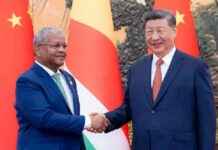A district in Guangzhou, a large city in southern China, is offering a special benefit to households who buy a home in the area. The benefit is free access to the local public school system. This is part of the Chinese government’s efforts to boost the housing market, which has been struggling in recent years.
In China, people’s access to public services is controlled by a household registration system called “hukou.” This system determines where a person can send their children to school. Many workers have moved to big cities like Guangzhou in the past few decades, but local governments have been hesitant to allow these migrants to change their hukou. This has resulted in many children being left behind in their hometowns for school.
However, Huadu District in Guangzhou is changing this by offering to waive some of these restrictions for non-locals who purchase a home in the area. The district government announced that homebuyers will now be able to enroll their children in local public schools and kindergartens.
To stimulate the housing market, Chinese authorities have been providing more incentives to homebuyers. Many local governments have already loosened rules on down payments and second home purchases, but these measures have not been very effective. Now, some authorities are using hukou benefits as an additional incentive.
This year, several cities have announced plans to offer hukou benefits to homebuyers, including Suzhou in eastern China. Nanjing has even started issuing residency permits to people who rent homes in the area. Huadu District’s initiative is significant because it is the first time a local government in a major city like Guangzhou has taken such a step.
The measure in Huadu District, known as “quasi-hukou status,” is part of a broader stimulus package that includes a property trade-in program. While property sales in Guangzhou have shown signs of improvement, there is still a problem with excessive housing stock. In Huadu District alone, there is 1.49 million square meters of unsold newly constructed housing as of July.
Experts believe that Huadu’s new incentive program will generate some demand for housing. Chen Xueqiang, a senior researcher, stated that other areas facing housing oversupply may follow suit with similar measures. Beyond addressing the real estate crisis, China is also relaxing the hukou system to promote economic growth by encouraging more people to move to cities with their families.
In 2022, the central government removed hukou restrictions in cities with populations under 3 million and urged megacities with over 5 million residents to eliminate caps on migrant hukou grants. This move aims to protect the education rights of migrant workers’ children.
Overall, Huadu District’s initiative is a significant step in leveraging hukou benefits to stimulate the housing market and encourage urbanization in China. It remains to be seen how effective these measures will be in addressing the challenges in the real estate sector and promoting economic growth in the country.









![Indie music fans gather at l’Antipode for [Face B] Kool Things soirée on Saturday night news-15112024-105933](https://shanghainewstv.com/wp-content/uploads/2024/11/news-15112024-105933-218x150.jpg)







